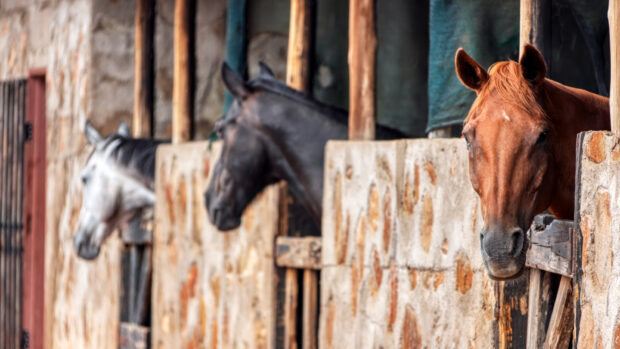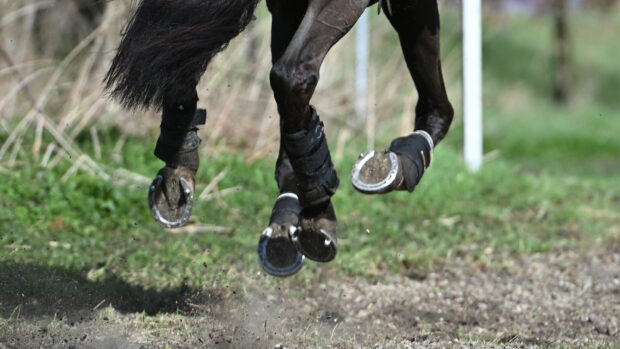A Horse & Hound Podcast advertising special with the British Horse Society
Welcome to this Horse & Hound Podcast advertising special, in association with the British Horse Society (BHS), which discusses the worrying number of riding school closures and why the new Keep Britain Riding campaign is on a mission to give everyone, irrespective of experience and background, the opportunity to engage with horses.
H&H’s Alex Robinson chats with BHS chief executive James Hick, and BHS Fellow and former four-star eventer and dressage rider Lizzel Winter, who also runs a BHS approved training centre and riding school. The conversation covers why riding schools are so important to the equestrian industry at large, and how you can get involved with the recently-launched Keep Britain Riding campaign.
You can listen online here, or via your favourite podcast app.
Riding schools are the lifeblood of equestrian participation, and we need to save them
The Keep Britain Riding campaign has been launched in response to the staggering amount of riding schools which have been closed over the past few years.
Since 2018, over 250 riding schools have closed their doors, and as a result more than 1.5 million riding lessons have been lost each year.
“Some closures accelerated through the pandemic, but there are also a large proportion of riding school owners and proprietors who are retiring,” says James, who was first introduced to horses by his grandfather. “One of the other key issues riding schools face is finding enough qualified staff. About 75% of riding schools struggle to get the coaches they need. One of the initiatives the BHS has created is the Careers Transition Fund, which encourages people through bursaries and supports their career in stages two and three of coaching.”
Giving people from non-horsey backgrounds the chance to engage with horses
Lizzel and her husband, Eric, have a riding school at Sevenvale Equestrian Centre.
“It’s a family-built riding school, but the staff drive it and a lot of them have come from non-horsey backgrounds,” Lizzel says. “The lady who now runs the school, and has done for 15 years, is not from the industry. She is the most amazing person that has come through the ranks. She initially went to a riding school as she liked horses, and then she found the friendly community spirit and has gone on and done qualifications. Over time we persuaded her that she was the right person to front up the riding school while my own and Eric’s careers went in a more international direction. She is the key to our success.
“Riding is perceived as a rich man’s sport and while we are very lucky in this country, it’s a sport that is open to all. I actually started my journey with horses through the BHS’s loan scheme, which allows children who can’t afford ponies to be involved.”
Making the horse/human bond accessible to all
The BHS also runs the Changing Lives Through Horses programme which aims to give everyone the chance to experience the unique joy that comes from working with horses. To date, 2,000 young people have been through the programme and 85 BHS approved riding centres across the country now offer the training.
“The programme was started in 2016 and it’s very much focused on young people, from the ages of about five years old up to 25 years old,” explains James. “Perhaps a child has been excluded from school or can’t go into full-time education. We have a programme of education which has been aligned and approved to the school circularium so young people can experience that horse/human bond.
“It’s really horse centric. It’s not all about riding; it’s about being around horses and being in a different environment. Young people’s lives have been transformed, allowing them to go back into society or get back into school or full-time education. We want to continue to grow this, so we really need the support from the wider equestrian community.
“The 2,000 young people is a great start, but it’s only a start. There are about two million children throughout the UK who are disenfranchised through formal education in someway and our mission is to increase the number of young people who go through the programme.”




